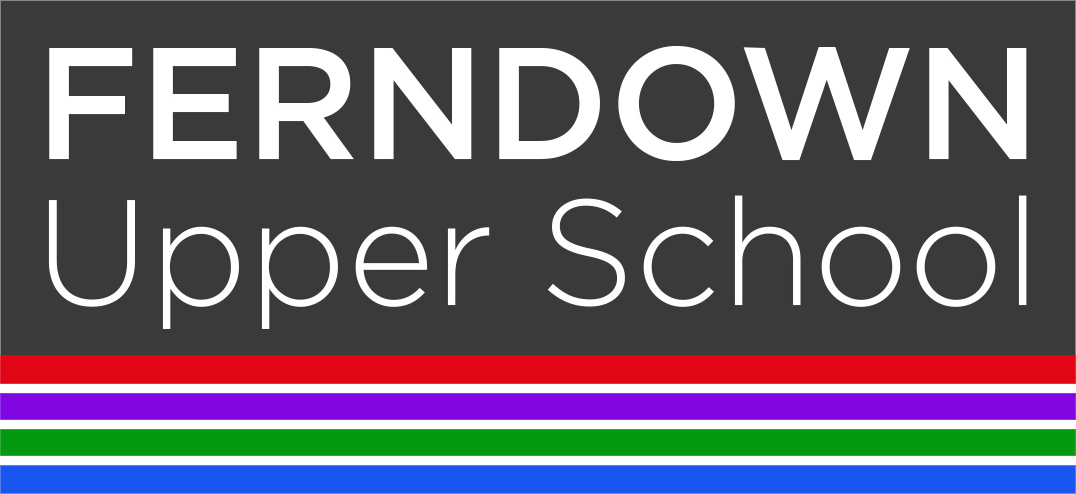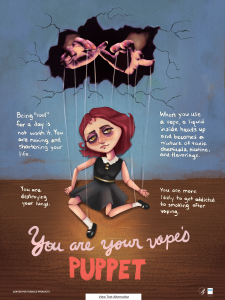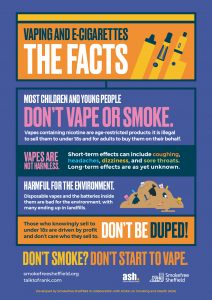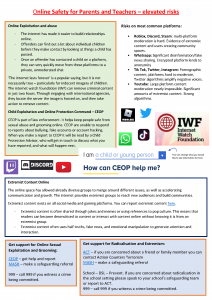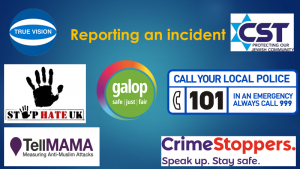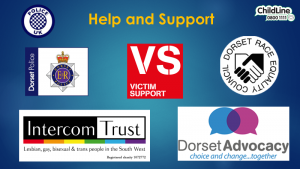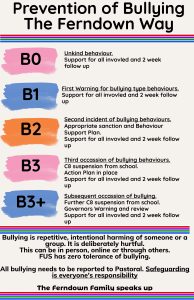There are times where students, and their parents and carers, would like to access and read about support available for their young person. This page contains a range of information and links to sites for support for our young people and their parents/guardians with challenges they might currently be experiencing.
Students have all been given a wellbeing card, shown in the image carousel below, which signposts them to a range of support. Our pastoral and safeguarding teams are also here to support all students – please do reach out if needed.
If you, as a family, have worries about anything you can reach out to Ferndown Family Support thorough the Ferndown Family Hub.
Key websites and links that support a range of concerns:
FUS works closely with Ferndown Community Support Ferndown Community Support CIC – please do contact them for additional family support – they are an amazing team, there to help our Community.
Some information and websites that we recommend can be found under the topics below:
General Help
Talk to FRANK
FRANK helps you find out everything you might want to know about drugs (and some stuff you don’t). For friendly, confidential advice, Talk to FRANK. Click on the link below if you have any queries, or are concerned about anyone, in relation to drug, alcohol and substance abuse.
Bullying is:
- repeated over time.
- deliberate and persistent.
- intended to hurt, control or adversely affect another person either physically or emotionally.
FUS does not tolerate bullying – please contact Pastoral immediately if you are experiencing bullying and we can support you.
Our Anti-Bullying Policy can be found here: Anti-Bullying Policy
Bullying | Get help and advice | YoungMinds
How can I help my child if they are being bullied? | NSPCC
Bullying Advice For Teenagers: #9 Tips On How To Cope To Win
How can I help my child if they are being bullied?
Bullying and advice on coping and making it stop | Childline
The National Domestic Abuse Helpline
Free of charge – 24 hours a day on 0808 2000 247 and through www.nationaldahelpline.org.uk/
National Domestic Abuse Helpline
Young people and domestic abuse spotlight – SafeLives
Operation Encompass
Operation Encompass is a police and education early intervention safeguarding partnership supporting children and young people who experience Domestic Abuse. Operation Encompass means the police will share, with school, any incidents or information regarding Domestic Abuse before the start of the next school day where they have been called to an domestic incident.
Any information shared through Operation Encompass is stored in line with all other confidential safeguarding and child protection information.
Talk to FRANK
FRANK helps you find out everything you might want to know about drugs (and some stuff you don’t). For friendly, confidential advice, Talk to FRANK. Click on the link below if you have any queries, or are concerned about anyone, in relation to drug, alcohol and substance abuse.
https://www.nhs.uk/live-well/addiction-support/drug-addiction-getting-help/
https://www.youngminds.org.uk/parent/parents-a-z-mental-health-guide/drugs-and-alcohol/
https://www.nspcc.org.uk/keeping-children-safe/support-for-parents/alcohol-drugs-parenting/
Support with eating disorders can be found at
Ygam.org – gaming and gambling support – use the Family Hub on the website for help https://ygam.org/family-hub/
The Mix
The UK’s leading support service for young people. Will help with any challenge – from mental ill health to break-ups, drugs.
Childline
Childline offers help and advice to children who are worried, concerned or at risk in any way. If you would like to contact an impartial person to discuss any issues that you may be finding difficult, please click on the link below or ring the number shown.
FGM is an illegal practice that schools have mandatory duty to report. If you suspect that someone is being taken away for this procedure please do report it to us.
Forced Marriage and Honour Based Violence Charity – Halo Project
Abuse: Can be physical or sexual but it can also be less obvious
Remember Ferndown Community Support Group is there to support – Ferndown Community Support CIC
https://www.citizensadvice.org.uk/debt-and-money/
https://www.familylives.org.uk/
Housing and homelessness https://www.everyturn.org/supported-housing/
Housing and homelessness https://www.salvationarmy.org.uk/
Sanctuary Housing and homelessness https://www.sanctuary.co.uk/
Shelter Housing and homelessness https://england.shelter.org.uk/
Housing and homelessness https://www.themix.org.uk/housing
The Trussell Trust Food https://www.trusselltrust.org/get-help/find-a-foodbank/
We have an active Rainbow Alliance in school that meets on the first Monday of every month.
For parents, or students who would like to know more about how to access support go to:
Sexuality: Just The Facts | Health For Teens
The Samaritans
Offer a safe place for you to talk any time you like, in your own way – about whatever is getting to you.
Managing Emotional Health – YouTube Video
Young Minds
A leading organisation that supports young minds to be supported and empowered whatever the challenges.
Mind
Click on the link if you would like to make contact with an impartial person to speak to if you, or someone you know of, may be feeling depressed, anxious or suffering from any sort of mental illness.
“We provide advice and support to empower anyone experiencing a mental health problem. We campaign to improve services, raise awareness and promote understanding.”
Kooth
https://explore.kooth.com/anonymous-chat/
Free, anonymous chat & online therapy for young people
All children should feel safe online. We teach students to use the internet and other technologies safely, to be critical of the things they see online and keep their data and security safe. Students are taught to know what to do if they feel uncomfortable with anything they see or hear either online or through other technologies, such as mobile phones.
These websites are excellent for providing advice and guidance for parents and students. There is also additional specific e-safety help at the bottom of this webpage.
Lifecake Guide to Internet Safety
https://www.lifecake.com/family-internet-safety-privacy/
Think U Know
#AskTheAwkward – help to talk with your children about online relationships
Think U Know is an important website that is aimed at children and their parents/carers to educate all concerned about the potential dangers and risks that currently exist on the internet. It is an important aspect of modern life that parents and carers are aware of exactly what their children have posted online, what security risks there are and also what sites their children are visiting. Please click on the link below and spend some time watching the video clips and resources therein.
NSPCC ‘Share Aware’
The NSPCC, in collaboration with O2, has produced a range of resources for schools and for parents about sharing information and images on the Internet.
Gov.uk – internet safety
UK Council for Internet Safety – GOV.UK
ParentZone
Parent Zone | At the heart of digital family life
REPORTING ISSUES
Child Exploitation and Crime Protection
“CEOP works with child protection partners across the UK and overseas to identify the main threats to children and coordinates activity against these threats to bring offenders to account. CEOP protects children from harm online and offline, both directly and in partnership with local and international agencies.” Click on the link if you or somebody you know of has been, or may be, the victim of on-line harassment, bullying or exploitation.
Internet Watch Foundation (IWF)
Click on the link if you have discovered any offensive websites or obscene content on the internet. The Internet Watch Foundation has the power to shut these sites down. To minimise the availability of potentially criminal internet content specifically:
- Child sexual abuse content* hosted anywhere in the world.
- Criminally obscene adult content hosted in the UK.
- Non-photographic child sexual abuse images hosted in the UK
Risky Behaviour
Prevent is a police policy to talk to vulnerable students who may be at risk of being radicalised. For more information about this or the signs that show potential concern go to:
Help for 10 to 17 year olds
The Self-Harm Network
The Calm Zone
The Campaign Against Living Miserably is the leading movement against male suicide.
‘You are not alone’: a guide for parents on coping with their child’s self-harm – produced by the Department of Psychiatry at the University of Oxford.
‘Sexting’ is an increasingly common activity among children and young people, where they share inappropriate or explicit images online or through mobile phones. It can also refer to written messages. As a parent, it is important to understand the risks so that you can talk to your child about how to stay safe and what to do if they ever feel scared or uncomfortable. The websites below provide a comprehensive list of links and information about online safety so parents, and their children, can decide what is right for their family when using the Internet and associated technologies.
Internet
Sex and Relationships Advice for Young People | The Mix
Sexual Health & Wellbeing | Brook
Friends, relationships and sex | Childline
Young people and domestic abuse spotlight | SafeLives
Myths vs facts | Rape Crisis England & Wales
Sexual violence and sexual harassment between children in schools and colleges | GOV.UK
Students complete a questionnaire about Caring responsibilities – some are then identified as young carers. Please speak to Pastoral if you would like to talk about this further.
If you are concerned for a students immediate safety please refer to our safeguarding page.
